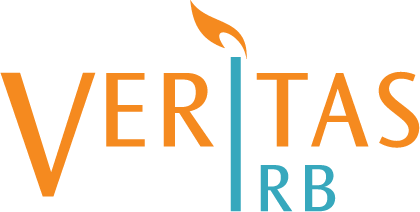Over the past six weeks, Veritas IRB has been assisting researchers and sponsors navigate through the challenges that the COVID-19 pandemic presents to their research.
Over the coming days, we will share different issues that were presented to the IRB. This blog posting will address issues pertaining to obtaining and documenting free and informed consent.
How Do I Obtain Participant Consent During the Pandemic?
During the pandemic, sponsors and researchers have inquired about obtaining informed consent from a research participant who is in quarantine or cannot travel to the research site due to the publicly declared emergency. Questions raised included the following:
- Is it acceptable to obtain research participant consent over the phone or videoconference (e.g. Skype, Zoom, WhatsApp, FaceTime)?
- Must the research team obtain a copy of the signed informed consent form prior to initiating study procedures?
- Can an e-mail confirmation from a research participant substitute a signed informed consent form?
The Requirement for Documented Consent to Research
Among the general principles of informed consent for human research in Canada is the requirement that research participants consent must be documented. In the context of research that compromises the physical integrity of research participants, such as clinical trials, participants must give their free and informed consent in writing. This requirement is stated under section 3.12 of the Tri Council Policy Statement. In the context of clinical trials, the requirement for written consent is found under section C.05.010 (h) of the Food and Drugs Regulations and section 4.8.8. of ICH-GCP. Moreover, written consent is also a requirement under section 24 of the Civil Code of Quebec for any research conducted in the province and that could interfere with the research participant’s integrity.
Obtaining Written Consent During the Pandemic
Therefore, in the context of the pandemic where it is not possible to conduct the consent discussion and obtain the written consent in person, electronic methods to obtain written consent should be considered and implemented, if the technology is available.
When such technology is not available or if impracticable, it is possible under the applicable legislation, regulations and guidelines in Canada to depart from the general principle of written informed consent with the authorization of the IRB.
Any departure from the general requirements of written informed consent should follow a systemic and consistent process that must be reviewed and approved by the IRB prior to implementation.
An Example of a Systemic Process to Document Consent for Clinical Research
Here is an example of a systemic process that would allow researchers to remotely obtain the documented free and informed consent of research participants.
Step 1: Sending a Copy of the Informed Consent Form
A copy of the written consent information is sent via email or regular mail to the research participant.
Step 2: Discussing the Informed Consent Form through Phone or Videoconference
A three-way phone or videoconference (e.g. FaceTime, Zoom, WhatsApp, Skype) is scheduled between the research participant, the investigator (or a designee) and an impartial witness (i.e. a person who is independent of the study and who cannot be unduly influenced by people involved with the study).
As this step is fundamental to ensure that the research participant has received a full disclosure of all the information necessary for making an informed decision to participate in the study, the phone call or videoconference must also follow a systemic approach.
- Ideally, the phone call or videoconference would be recorded. The participant must be informed that a recording will be made;
- Individuals on the call will introduce themselves at the beginning of the call;
- The investigator (or a designee) will present the consent form and respond to any questions the research participant may have;
- The witness will confirm the research participant’s questions have been answered;
- The investigator (or a designee) will ask the research participant if they are willing to participate in the study or if they need additional time before making a decision. If the research participant needs additional time before consenting, a second phone call or videoconference will be required;
- If the research participant is willing to participate, they will verbally confirm that they would like to participate in the study and that they have signed and dated the informed consent form in their possession.
Step 3: Documenting the Research Participant’s Consent
Several options are possible to document the research participant’s consent. Ideally, the research participant would return the completed consent form by mail, or a scanned copy via secure electronic transmission (e.g. secure e-mail account or secure electronic portal).
If the consent form cannot be collected from the research participant, the impartial witness could attest that the information in the consent form and any other written information was accurately explained to, and apparently understood by, the research participant and that their informed consent was given freely. This attestation would be signed and dated by the impartial witness.
Another option is to have the recording of the phone call or videoconference entered into the study file along with an attestation from the investigator (or designee) detailing how the recording was obtained and confirming that it is a recording of the research participant consenting to participate in the study.
Step 4: Preparing a Note-to-File Detailing Departure from Standard Practice
A copy of the informed consent form signed by the investigator and witness should be placed in the research participant’s source documents along with a Note-to-File documenting how the free and informed consent was obtained. The Note-to-File should namely detail how it was confirmed that the research participant signed the consent form, and must also confirm that free and informed consent was obtained prior to participation in the study.
Conclusion
While the present pandemic presents several challenges to researchers and sponsors, it is important to remain vigilant and exercise due diligence in respecting ethical principles, procedures and the law.
It is essential that any deviation or exception from the general ethical principles be supported by a strong rationale and be narrowly implemented to meet the specific necessities created by the present pandemic.
Respect of research ethics principles during the current pandemic is even more important than under normal circumstances, and may require even greater effort, since research participants, researchers, sponsors and REBs may be rendered more vulnerable by the demands of the pandemic and the stress to find therapeutic or preventative solutions.


